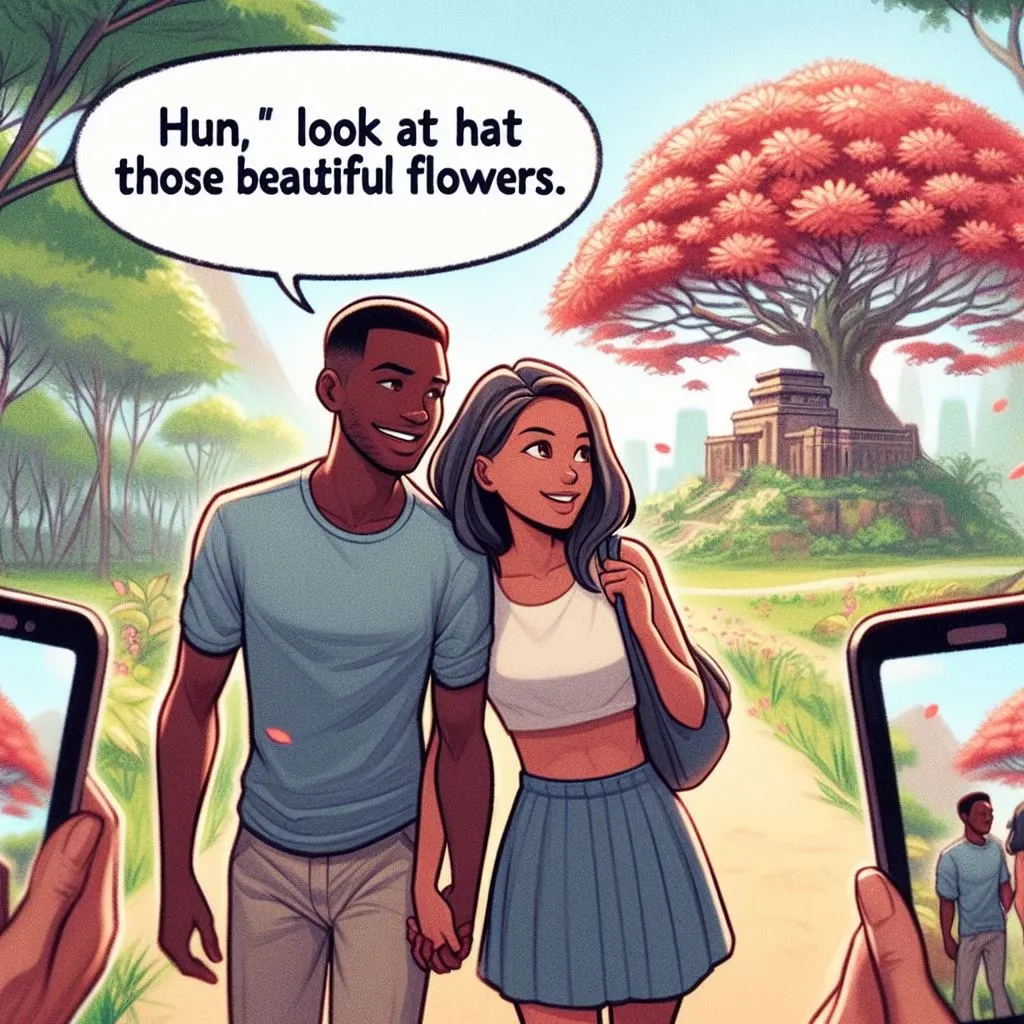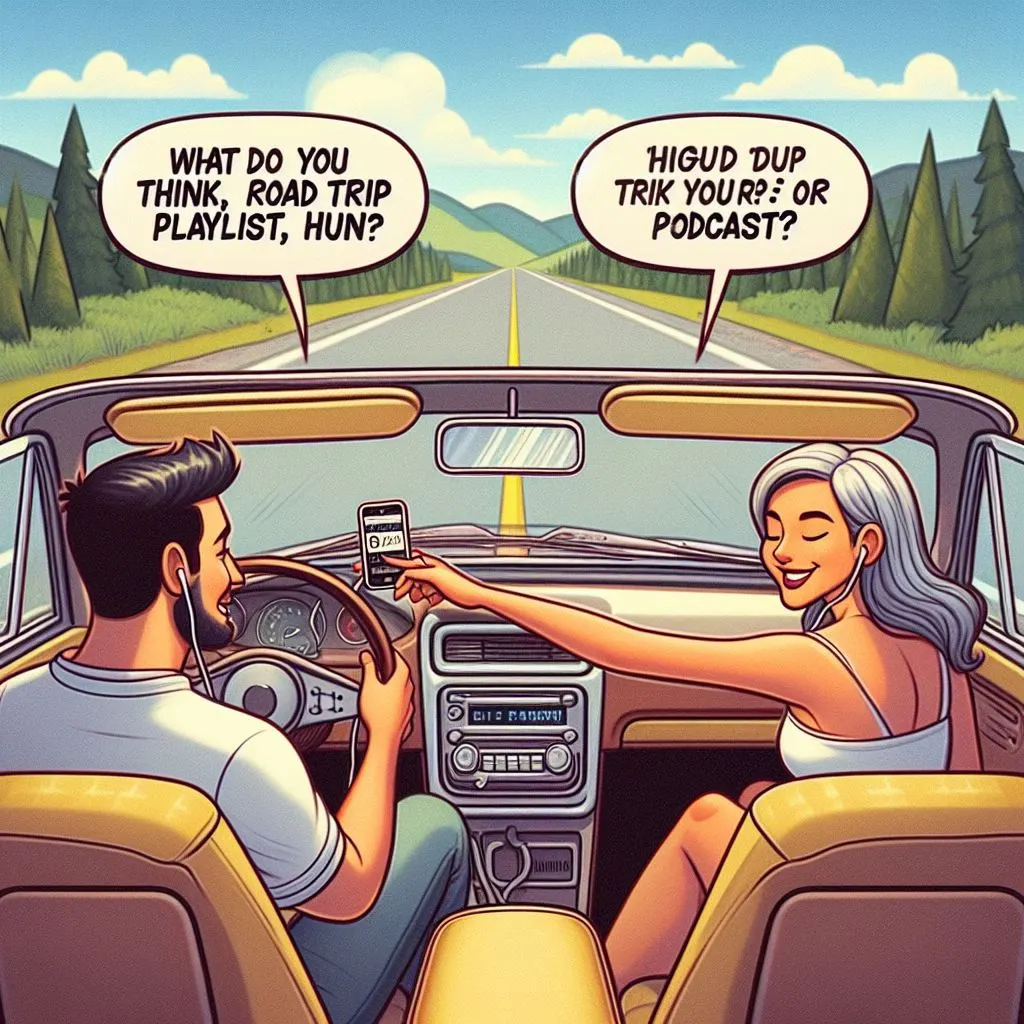Introduction
Ever pondered What does it mean when a Guy calls you hun? This reputedly clean period of endearment can bring layers of that means, from affection to familiarity, relying on the context and the dynamics of the relationship. Picture this: You’re speaking to a man, and out of nowhere, he affectionately calls you “hun” or “honey.” It’s like a pet call, a sweet gesture that catches your interest and leaves you thinking about his intentions. But before you jump to conclusions, it’s essential to recollect the nuances of his terms and movements.
In this blog post, we’ll delve into the multifaceted meanings inside the back of the term “hun” while a guy uses it, exploring situations wherein it’s a real display of love, a pleasing gesture, or in all likelihood even a diffused flirtation.
So, let’s unravel the mysteries of this endearing nickname and learn how to navigate the elaborate dance of verbal exchange and affection in the contemporary courting landscape.
Key Takeaways
- Gain insight into the several meanings behind the term “hun” even as utilized by a person, from real affection to informal friendliness or perhaps potential flirtation.
- Learn a way to interpret the context, tone, and frame language to decipher the actual intentions behind being referred to as “hun” or “honey” by using a guy.
- Understand the importance of open communication and putting boundaries in response to being known as endearing nicknames like “hun” or “sweetie.”
- Explore real-life examples and stories to illustrate the complexities of interpreting such terms in different relationship dynamics and situations.
- Equip yourself with sensible strategies for addressing discomfort, expressing emotions, and navigating conversation efficiently in interactions where phrases of endearment are used.

Recognizing the Various Connotations of the Term “Hun”
Affectionate Nickname
When a guy calls you “hun,” it could imply numerous matters relying on the context and the connection between each party. Let’s discover a few examples of whilst “hun” is used as a term of endearment:
- In a Romantic Relationship: In a romantic courting, calling a person “hun” is usually a way to explicit affection and closeness. It’s a period of endearment that indicates intimacy and fondness among partners. For example, a boyfriend might say, “Hey, hun, how’s your day?” as a candy gesture to show he cares.
- Among Close Friends or Family: Sometimes, “hun” is used amongst close pals or family individuals as a pleasant and acquainted term. It may signify a strong connection and a sense of unity. For example, a sister may casually and affectionately say to her brother, “Thanks for helping me out, hun.”
Friendly Gesture
In certain contexts, “hun” can be used as a friendly gesture without romantic connotations. Here are instances where “hun” is used in a platonic context:
- In a Professional Setting: In professional settings, colleagues or acquaintances may use “hun” in a friendly yet respectful manner. It’s a way to address someone warmly without overstepping expert obstacles. For example, a coworker may say, “Could you pass me the document, hun?” as a polite and amiable request.
- Among Acquaintances: When used among friends or in social settings, “hun” can be a casual and inclusive term. It’s a means of selling a sense of companionability and friendliness without suggesting a romantic interest. For instance, whilst a neighbor runs into a person on the street, they may comment, “Hey, hun, how’s it going?” as a friendly welcome.
Patronizing Attitude
However, it’s vital to apprehend that in a few cases, “hun” can be used condescendingly, indicating a patronizing attitude. Here are symptoms that “hun” can be used disrespectfully.
- Dismissive Tone: Using the term “hun” condescendingly or dismissively might imply a lack of respect or denigration. For instance, it might be interpreted as rude if a customer support agent replies, “I’m sorry, hun, but, that’s our coverage,” in a tone that conveys anger or superiority.
- Context of Power Dynamics: In situations where there’s a strength imbalance, which incorporates a patron interacting with a provider issuer, the usage of “hun” in a patronizing way can exacerbate tensions. It may additionally imply an experience of superiority or condescension, undermining the other man or woman’s authority or intelligence.
How to Address Disrespectful Language
If you encounter disrespectful language or tone, it’s important to cope with it assertively and respectfully. Here are the steps you may take:
- Clarify Boundaries: Politely however firmly assert your limitations and talk that you expect to be handled with recognition. You can say something like, “I favor to be addressed by my call” or “Please refrain from using patronizing language.”
- Express Discomfort: If someone continues to apply disrespectful language no matter your request, specify your pain directly. You can say, “I locate using ‘hun’ in this context inappropriate and disrespectful. Please address me with respect.”
Remember, verbal exchange is prime in addressing disrespectful conduct. By assertively advocating for yourself and setting clean limitations, you can assert your dignity and call for it to be dealt with with respect.
The Context Matters
Consider the Relationship Dynamics
- Friendship: Imagine you’re putting out together with your close pal, Tom. He casually drops a “Hey, hun” into the communication. What does it mean? Is there a hidden message, or is it just Tom being his usual friendly self?
- Colleagues: Now, picture a scenario at work. Your male coworker addresses you as “hun” during a team meeting. Is it a professional courtesy, or could there be underlying implications?
Analyzing the Tone and Body Language
- Friendly Banter: Sarah and Mike are chatting over coffee. When Sarah jokingly calls Mike “hun,” it’s followed by laughter and comfortable body language. Is this simply playful banter, or ought there be more to it?
- Serious Conversation: Contrastingly, at some stage in critical dialogue, John looks at once into Mary’s eyes and softly says, “Listen, hun…” Is his tone conveying sincerity, or is there an underlying timetable?

Previous Communication Patterns
- Consistency: Your online buddy continually refers to you as “hun” in messages. Is it part of their everyday vocabulary, or may want to characterize a deeper connection?
- Change in Behavior: You’ve noticed a trade in your accomplice’s communication fashion—they’ve started the usage of “hun” greater regularly. Is it a sign of affection, or may there be a shift in the relationship dynamics?
Interpreting the Significance
Understanding what it manner when a guy calls you “hun” calls for an eager recognition of various factors, together with context, tone, and former interactions. Here are some key insights to don’t forget:
- Reserved Term of Endearment: Similar to “sweetie” or “darling,” “hun” is every so often used as a period of endearment. It conveys a degree of intimacy and fondness throughout the courtship.
- Casual Communication: On the flip side, “hun” also can be hired in informal settings amongst buddies or associates. It’s a relaxed and informal way of addressing someone.
- Professional Courtesy: In expert settings, people may additionally use “hun” as a shape of politeness or to establish camaraderie. However, it’s essential to gauge the appropriateness of such language within the place of business.
- Sign of Attraction: In certain contexts, calling someone “hun” could hint at a romantic hobby or enchantment. Pay attention to accompanying gestures, which include prolonged eye contact or diffused flirtation.
- Individual Interpretation: Ultimately, the means of “hun” can vary based on personal interpretation and cultural norms. What can also seem harmless to one man or woman could be perceived differently than any other.
Reacting to the Term “Hun”
When someone calls you “hun,” it may stir up a combination of emotions and interpretations. Let’s dive into what it might mean and the way to reply graciously.
Expressing discomfort if needed
Being referred to as “hun” may seem uncomfortable for diverse reasons. Here are more than one examples of while you may need to express your soreness:
- Misinterpretation of Intent: If the individual using the period isn’t a person you’re acquainted with, and their tone or demeanor feels beside the point, it’s ok to express soreness. For instance, if a stranger at a celebration calls you “hun” in a manner that feels patronizing or invasive, it’s crucial to say your obstacles.
- Professional Settings: In expert environments, being referred to as “hun” by a colleague or superior may move barriers. For example, it’s crucial to handle it properly if a coworker calls you “hun” regularly in an insulting way.
Setting boundaries in communication
Maintaining clean limitations in conversation is fundamental, especially when terms of endearment like “hun” are used. Here are more than one examples of placing obstacles:
- Direct Communication: If being known as “hun” makes you uncomfortable, it’s important to communicate directly with the character the usage of the term. For instance, you could say, “I choose to be addressed by my name,” or “I’m now not snug with that period of endearment.”
- Establishing Expectations: Setting clean expectancies approximately communique barriers can save you destiny discomfort. For example, if you’re starting a new activity, you could in a well-mannered way mention in the course of introductions that you decide upon expert language inside the administrative center.
Being mindful of your own language choices
While it’s essential to cope with how others speak with you, it’s also critical to understand your language selections. Here are more than one examples:
- Respectful Communication: Just as you assume admire in communique, make certain that you’re addressing others respectfully as well. Avoid the usage of terms that might make others uncomfortable except you’re positive it’s welcomed.
- Open Dialogue: Encourage open speaking about communique alternatives. If a person makes use of a term you’re not cushty with, respectfully allow them to realize your alternatives. Similarly, be open to remarks about your language choices.
Navigating communique dynamics, specifically regarding terms of endearment like “hun,” calls for sensitivity and clear conversation. By expressing pain while wanted, putting limitations, and being aware of language picks, you may foster respectful interactions in numerous contexts.

Real-life Examples and Stories
Decoding the Language of “Hun”: Insights and Interpretations
Is it friendly banter or flirting?
Example 1: Imagine you’re speaking to a colleague at work, and he casually refers to you as “hun” all through the verbal exchange. In this situation, it’s essential to remember the context and tone of the interplay. If his demeanor is pleasant and lighthearted, without any romantic undertones, it’s in all likelihood that he’s the usage of the term as a friendly gesture as opposed to a flirtatious increase.
Example 2: Conversely, in case you’re undertaking a playful change with someone you’re romantically worried about, and that they affectionately name you “hun,” it’s indicative of a deeper emotional connection. In such instances, “hun” serves as a period of endearment, expressing fondness and intimacy within the dating.
True Narratives and Examples: Revealing the Variations of “Hun”
Individual Experiences and Interpretations
Example 1: Sarah recalls a memorable come-across in which a guy she had just met at a party cited her as “hun” throughout their communique. Initially greatly surprised, she determined his friendly demeanor and found out that he changed into simply trying to establish rapport in a casual, non-threatening way.
Example 2: On the opposite hand, Emily shares a different perspective, recounting a situation where a near male buddy started out calling her “hun” once they were spending extra time collectively. Despite their platonic courting, Emily couldn’t shake off the diffused tips of romantic hobby embedded in his preference for phrases.
Anecdotes from Various Perspectives: Diverse Interpretations of “Hun”
Insights from Different Social Circles
Example 1: In a survey performed among a set of university students, responses were numerous broadly regarding the results of being called “hun” using a man. While some interpreted it as a pleasant gesture synonymous with “buddy” or “friend,” others viewed it as a capacity sign of a romantic hobby, relying on the context.
Example 2: Within certain industries or communities, such as hospitality or customer service, the term “hun” is frequently used interchangeably with “ma’am” or “sir” as a polite form of dealing. In these contexts, its significance is primarily rooted in professionalism rather than personal sentiment.
Approaching Communication and Setting Boundaries
Communicate openly and directly with the guy
Communication is key in any interaction. When faced with the term “hun” from a guy, it’s essential to address it directly rather than letting assumptions linger. Here are two examples of how to approach this:
- Direct Approach:
- If a guy you’re inquisitive about calls you “hun,” it might be an informal way of announcing hi there. Approach him without delay, announcing, “I noticed you’ve been calling me ‘hun.’ What does it mean to you?
- Sales Pitch: This opens the door for an honest conversation, strengthening the bond between you both.
- Casual Inquiry:
- If a coworker uses the term “hun” in verbal exchange, you could casually ask, “Do you name everybody ‘hun,’ or is there a particular reason you operate it with me?”
- Sales Pitch: This approach maintains professionalism while seeking clarity on the matter.
Clarify intentions and expectations
Understanding the underlying intentions behind the term “hun” is crucial for setting appropriate boundaries. Here’s how you can navigate this aspect:
- Define Boundaries:
- If a guy friend starts using “hun,” be clear about your boundaries. You could say, “I respect our friendship, but I’m not comfortable with phrases of endearment.”
- Sales Pitch: Asserting obstacles shows self-recognize and ensures mutual know-how.
- Discuss Expectations:
- In a budding relationship, discuss what terms of endearment mean to each of you. This conversation fosters understanding and avoids misunderstandings.
- Sales Pitch: Establishing expectations early on paves the way for a harmonious connection.

Establish boundaries and express feelings
Setting limitations is a critical thing of self-admire and a wholesome communique. Here are actionable steps to achieve this:
- Assertive Communication:
- If a guy persists in using “hun” despite your discomfort, be assertive. Say, “I’ve mentioned before that I’m not comfortable with ‘hun.’ It’s important to me that you respect that.”
- Sales Pitch: Asserting yourself reinforces your values and demands respect.
- Express Vulnerability:
- Share your feelings openly and vulnerably. For instance, “When you call me ‘hun,’ it makes me feel like our relationship lacks depth. Can we find other ways to connect?”
- Sales Pitch: Vulnerability fosters intimacy and strengthens emotional bonds.
Cracking the Code of “Hun”: A Story of Clarity and Misunderstandings
In modern dating, innocent-sounding pet names can be scary to figure out. They make it hard to know the speaker’s intentions. My experience with the term “hun” left me uncertain. I craved clarity.
It all started one night at a crowded espresso shop. I found myself deep in talk with a captivating stranger. We exchanged tales and laughter. The honesty in his speech and the warmth in his eyes were too much for me to ignore. Everything seemed to click. I found myself interested in his easygoing manner.
However, as the communique flowed smoothly, he casually cited me as “hun” inside the midst of our banter. Instantly, my mind raced with questions. Was it a signal of true affection or a friendly gesture? Did he see me as more than just a casual acquaintance?
Caught off defense, I struggled to interpret the meaning at the back of his phrases. Was he flirting with me, or was I reading an excessive amount of right into an innocent nickname? The uncertainty gnawed at me, overshadowing the otherwise quality interplay.
During the times that I observed, I couldn’t shake off the lingering doubt. It lingered inside the return of my thoughts. Each time I recalled our talk, I wondered why he was using “hun” to refer to me. It casts a shadow of doubt over our budding connection.
But, we didn’t find it until we crossed paths again. This time, it was in a more intimate place. We shared a quiet moment. He addressed the elephant in the room, acknowledging the paradox of his use of the term “hun.” With real sincerity, he explained. It truly became his way of showing warmth and affection, with no romance.
At that moment, I was honest and vulnerable. I saw the importance of open talk in navigating complex, modern relationships. The period “hun” might also have unique meanings for some people. But, it’s our willingness to cope with misunderstandings and our true intentions. These pave the way for real connection and understanding.
To everyone facing similar uncertainties, I offer this advice: Don’t fear to ask questions. Seek clarity and speak openly with those around you. In a world where phrases are often misinterpreted, the truth of our intentions is what matters in matters of the heart.
FAQs: What does it mean when a guy calls you hun
What subtle signals might indicate genuine interest when a guy calls you “hun”?
When a guy calls you “hun,” there are diffused signals that would suggest true hobby past mere friendliness. Pay interest to his tone of voice and frame language; sincere affection often manifests via warmth and attentiveness. Additionally, if he makes use of the period “hun” completely with you and no longer with others, it can symbolize a stage of intimacy or appeal he doesn’t share with anybody. Context matters too— if he uses it in moments of vulnerability or during meaningful conversations, it’s likely more than just a casual pet name.
How can one determine between playful banter and honest affection whilst a guy calls me “hun”?
Distinguishing between playful banter and honest affection while a guy calls you “hun” can be challenging but not impossible. Consider the consistency of his behavior: does he display genuine care and consideration beyond just the term “hun”? If he constantly makes efforts to connect to you emotionally and respects your boundaries, it’s much more likely his affection is authentic. However, if his use of “hun” feels impersonal or is followed through sarcasm or dismissiveness, it can lean greater toward playful banter.
When dissecting the significance of a man calling someone “hun,” what position does context play in deciphering his intentions?
Context performs a pivotal position in interpreting the significance of a man calling you “hun.” Depending on the context, the period “hun” may want to bring different meanings. For instance, if he is just being friendly or if he calls everyone “hun,” it may now not always imply he is romantically interested in you. However, if he makes use of it in a greater intimate setting or all through moments of emotional connection, it may suggest he finds you appealing or wishes to expose affection.

Could the frequency of being called “hun” by a guy signify escalating flirt or simply friendly rapport?
The frequency of being called “hun” by a guy can indeed signify escalating flirtation or simply friendly rapport, depending on the dynamics of your relationship. If he frequently makes use of the period completely with you and his behavior shows he’s making efforts to connect on a deeper stage, it’s possibly his manner of subtly expressing romantic interest. On the other hand, if he uses it casually with everybody or in a platonic context, it could sincerely be his manner of being affectionate without romantic implications.
In the world of current courting, how does the term “hun” or honey shape the delicate dance of communication, and ought one pay attention to its utilization as a potential indicator of the romantic hobby?
In the world of modern relationships, the period “hun” suits the sensitive dance of verbal exchange in diverse ways. While a few may additionally see it as a slight period of endearment, others may interpret it otherwise based totally on personal alternatives and experiences. It’s essential to be aware of how the person who’s calling you “hun” behaves ordinarily and the context wherein they use the period. While it may be a manner of showing affection, it doesn’t necessarily mean the character is romantically worried or involved. Instead, it could surely be their way of being friendly or expressing care in a non-romantic manner.
Conclusion: What does it mean when a guy calls you hun
- Unraveling that means requires caution. It’s hidden in terms of endearment like “hun”. You need to pay attention to context, tone, and goal.
- It’s natural to seek clarity in our interactions. But, we must communicate with an open mind. We must be willing to understand others.
- Remember, the meaning of phrases like “hun” can vary. It depends on the preferences of men or women. It also depends on cultural norms and relationship dynamics.
- Open and sincere communication can bridge the gap. It is between ambiguity and expertise. We can foster it. This will let us form deeper connections with those around us.
- So, if you’re dealing with today’s relationships, or seeking clarity on your interactions, embrace the power of talk. Trust in your ability to navigate human connection.
Call to Action
- Take a moment to reflect on your own stories. They feature phrases like “hun”. Don’t forget their nuances for your relationships.
- Practice open conversation. Listen energetically in your interactions, seeking clarity and information when ambiguity arises.
- Share your insights and experiences with others. This fosters a culture of open talk and mutual appreciation in your community.
- Together, we will solve the mysteries of communication. We will embrace the power of knowledge in our relationships.

Sarah Andrews’ work on relationships is informed by a breadth of experience and a strong interest in human nature. Sarah, who holds a Psychology degree and has a good eye for nuances, delves into the complexity of communication and emotion, delivering insightful insights for readers seeking personal growth and emotional pleasure. Sarah hopes that her empathic approach and insightful suggestions will motivate readers to understand themselves and their relationships better.
